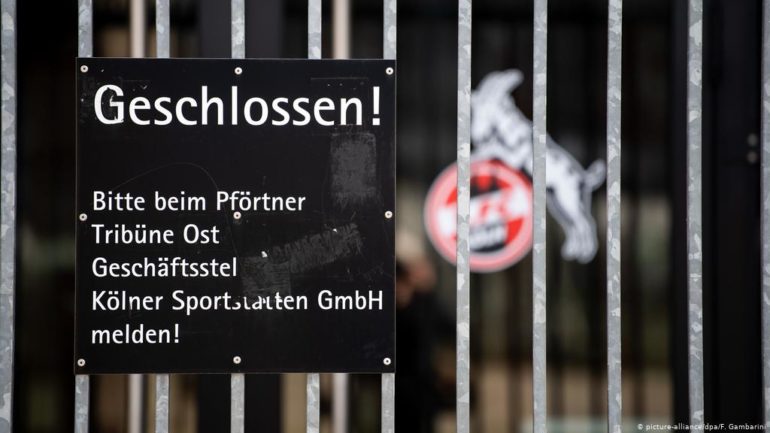More than 1 billion people could be immunised against coronavirus by the end of next year with shots from the first two companies to reveal positive results, after the latest vaccine was shown to be nearly 95% effective in trials.
With the US’s top infectious diseases official, Anthony Fauci, hailing “the light at the end of the tunnel”, the US biotech firm Moderna announced impressive results for its mRNA vaccine on Monday, a week after interim results for a Pfizer/BioNTech vaccine showed 90% effectiveness.
The inclusion of high-risk and elderly people in the Moderna trial suggested the vaccine would protect those most vulnerable to the disease, said Peter Openshaw, a professor of experimental medicine at Imperial College London, who described the results as “tremendously exciting”.
Though it is more expensive, Moderna’s vaccine could potentially provide a major advantage over Pfizer’s, which requires ultracold freezing between -70C (-94F) and -80C from production facility to patient.
Moderna said it had improved the shelf life and stability, meaning its vaccine can be stored for six months at -20C for shipping and long-term storage, and at standard refrigeration temperatures of 2C to 8C for 30 days.
Moderna said it could potentially manufacture 1bn doses by the end of 2021, adding to a further 1.3bn from Pfizer/BioNTech in the same timeframe. Both vaccines require two doses and are due to be assessed by regulators in coming weeks.
Speaking at a press briefing, Fauci, the director of the US National Institute of Allergy and Infectious Diseases, which co-developed the vaccine, lauded the Moderna jab and others still in trials.
He urged people to continue to observe guidelines to combat the disease. “We should not let the accomplishment of an effective vaccine have us feel we can let our guard down … In fact, it should be an incentive to double down as we then ultimately have the synergy between a vaccine and a public health measure which will get us out of the very difficult situation.”
Stéphane Bancel, the chief executive of Moderna, said: “This has been incredible teamwork. I think none of us probably thought that we could get to this place in the last 10 months.”
Moderna’s interim analysis, based on the first 95 patients with confirmed Covid infections, found the candidate vaccine had an efficacy of 94.5%. The company said it planned to apply to the US regulator, the Food and Drug Administration (FDA), for emergency use authorisation in the coming weeks. In the analysis, 90 of the patients had received the placebo with the remaining five getting the vaccine.
Though provisional, the results are particularly exciting because the trial included a large proportion of people at high risk of severe Covid-19 and these appear to have been well protected.
The Moderna vaccine, which is being trialled in more than 30,000 volunteers, is not expected to be available outside the US until next year. The biotech company said it would have 20m doses ready to ship in the US before the end of 2020 and hoped to manufacture 500m to 1bn doses globally next year.
Moderna has agreed to provide the US with 100m doses, with an option to buy 400m more. Japan, Canada, Switzerland, Qatar and Israel have also signed agreements, and the European commission has a “potential purchase agreement” for 80m-160m doses.
The vaccine, which is based on similar mRNA technology to BioNTech’s, is expected to be assessed by the FDA on a final analysis of 151 Covid cases among trial participants who will be followed on average for more than two months.
At £38 to £45 for a course of two shots, Moderna’s vaccine is more expensive than the other frontrunners. AstraZeneca and Oxford University are aiming to sell their vaccine at about £3 a dose, while vaccines in trial with Johnson & Johnson and a collaboration between Sanofi and GSK are both expected to cost about £8 a dose. Pfizer is charging the US about £30 for a two-shot course.
Moderna’s two-shot vaccine injects genetic material called mRNA into the body, which cells then use to churn out the spike protein the virus uses to invade cells. The spike protein covers the surface of the virus and is one of the main targets of the body’s immune response to wipe out the infection.
There is some statistical uncertainty over the 94.5% figure but Stephen Evans, a professor of pharmacoepidemiology at the London School of Hygiene & Tropical Medicine, said that based on the numbers released, the efficacy was still likely to be better than 85%.
A question mark remains over whether the Pfizer vaccine prevents serious illness. The Moderna results, released by an independent data safety monitoring board, are encouraging on this point.
Of 11 participants who developed severe Covid while on the trial, all were in the placebo group. The results also suggest the vaccine is effective in older people and those from diverse ethnic backgrounds. Moderna said about 42% of participants were at risk of severe Covid-19 if infected, as they were older or had co-morbidities such as diabetes, obesity or high blood pressure.
Moderna’s interim analysis found no significant safety concerns, with most reactions being mild to moderate and short lived. Among the side-effects reported were injection site pain in 2.7% of trial volunteers after the first jab. After the second, the most significant side-effects included fatigue in 9.7%, muscle pain in 9% and joint pain in 5%. Others had headaches, other pains, or redness at the injection site.



